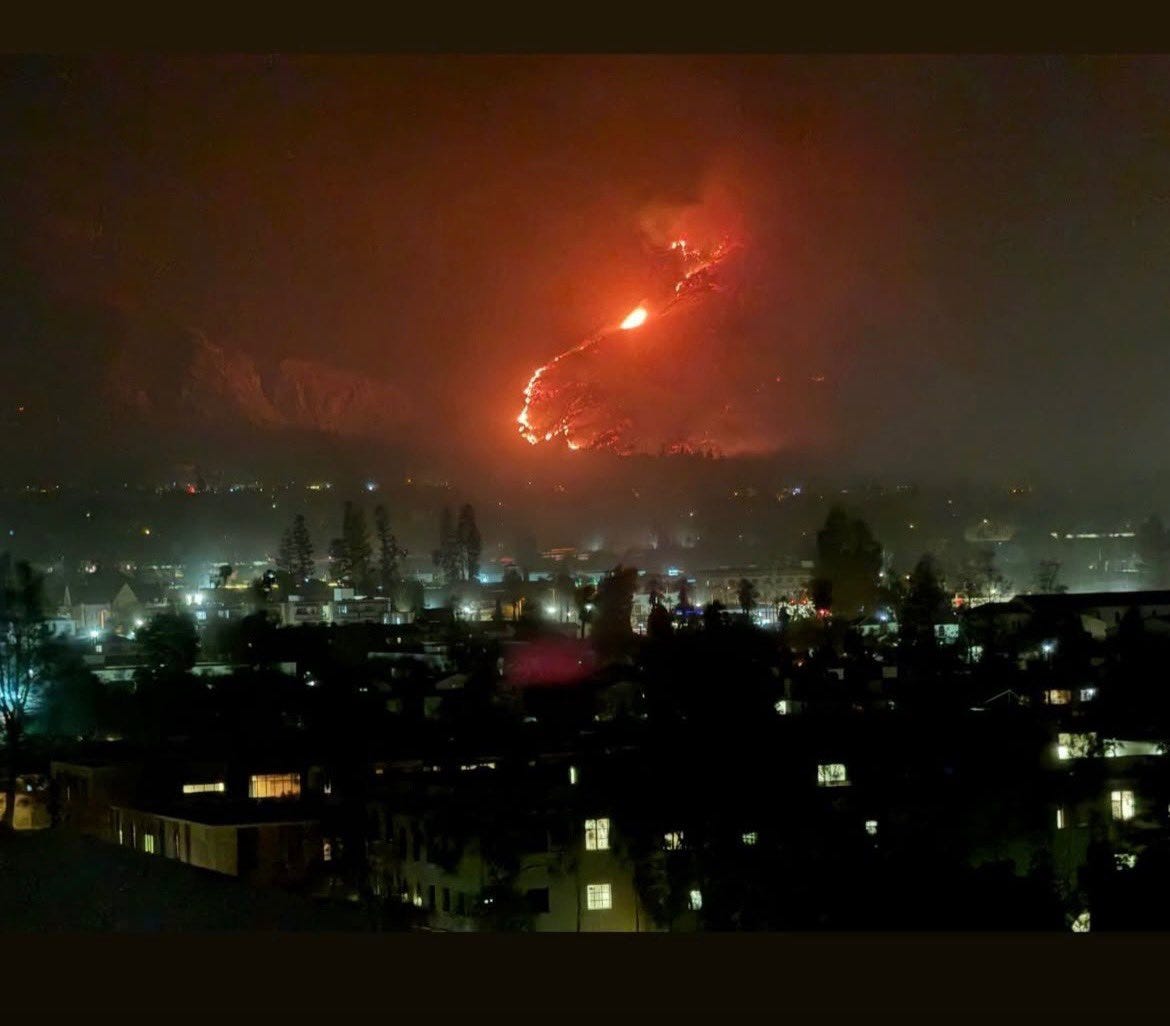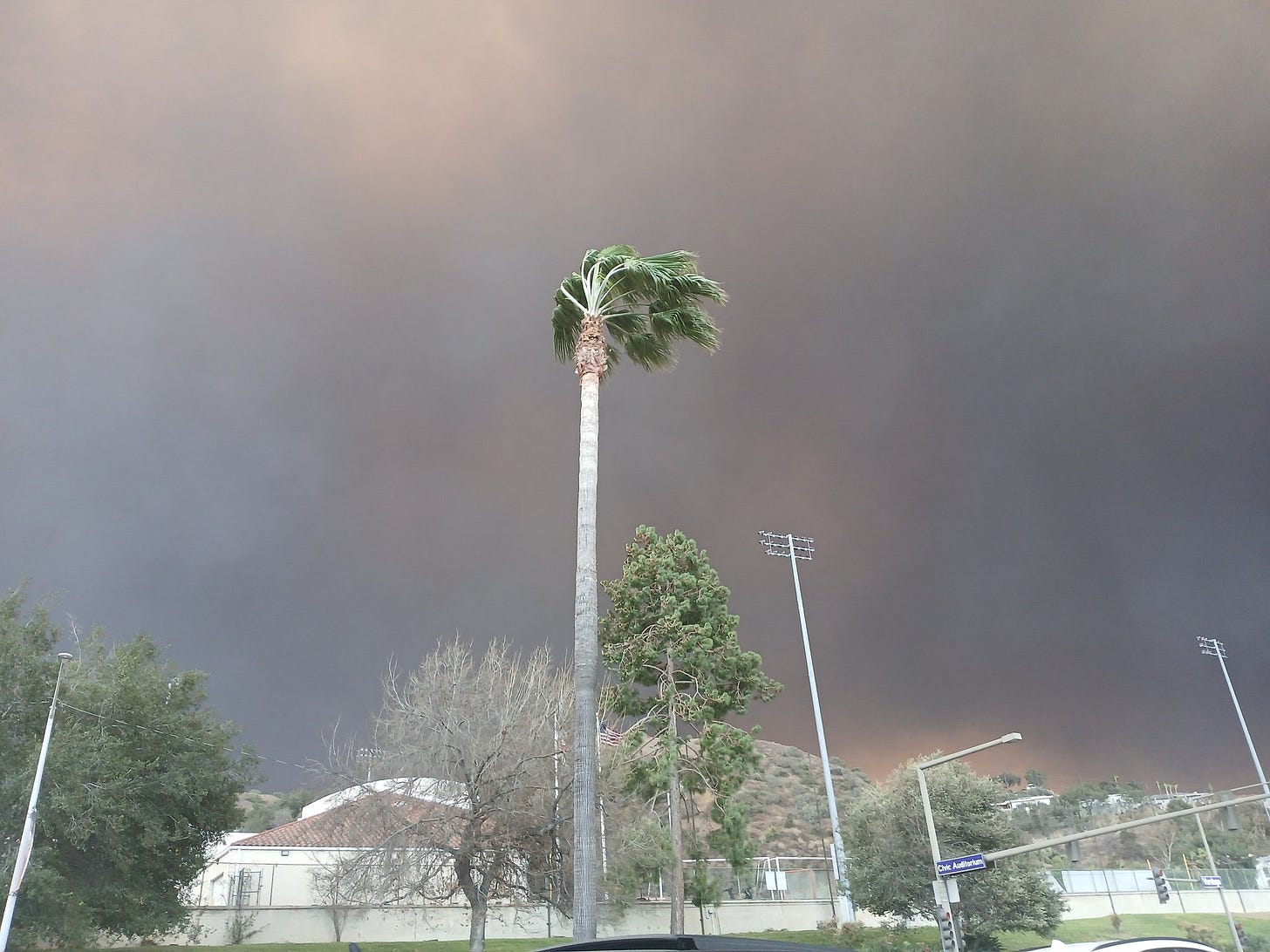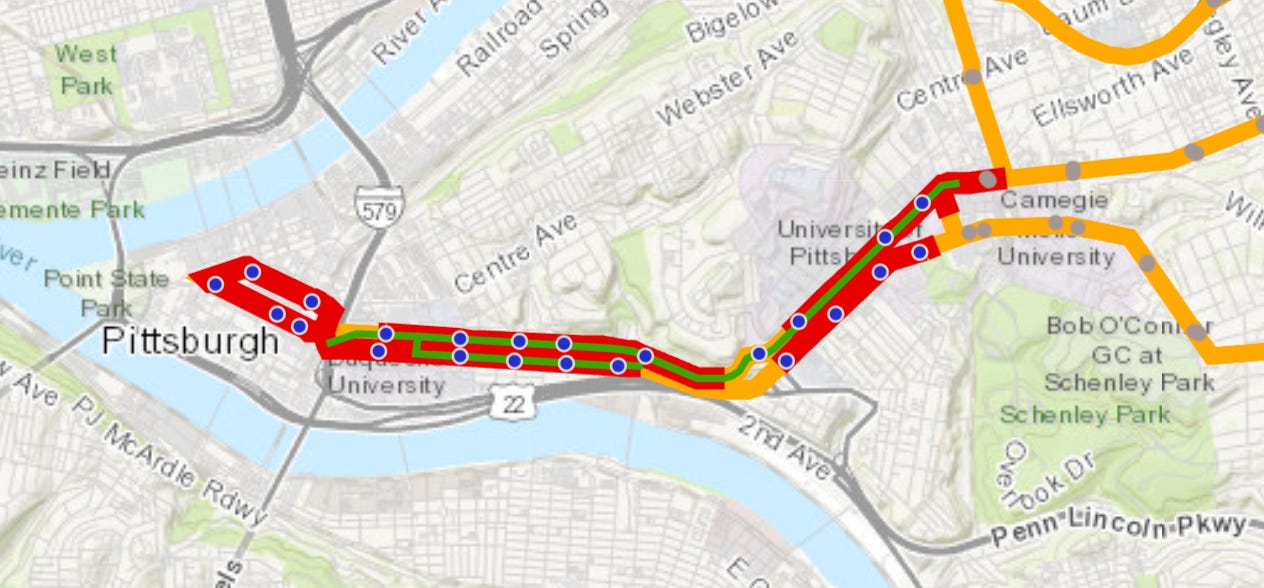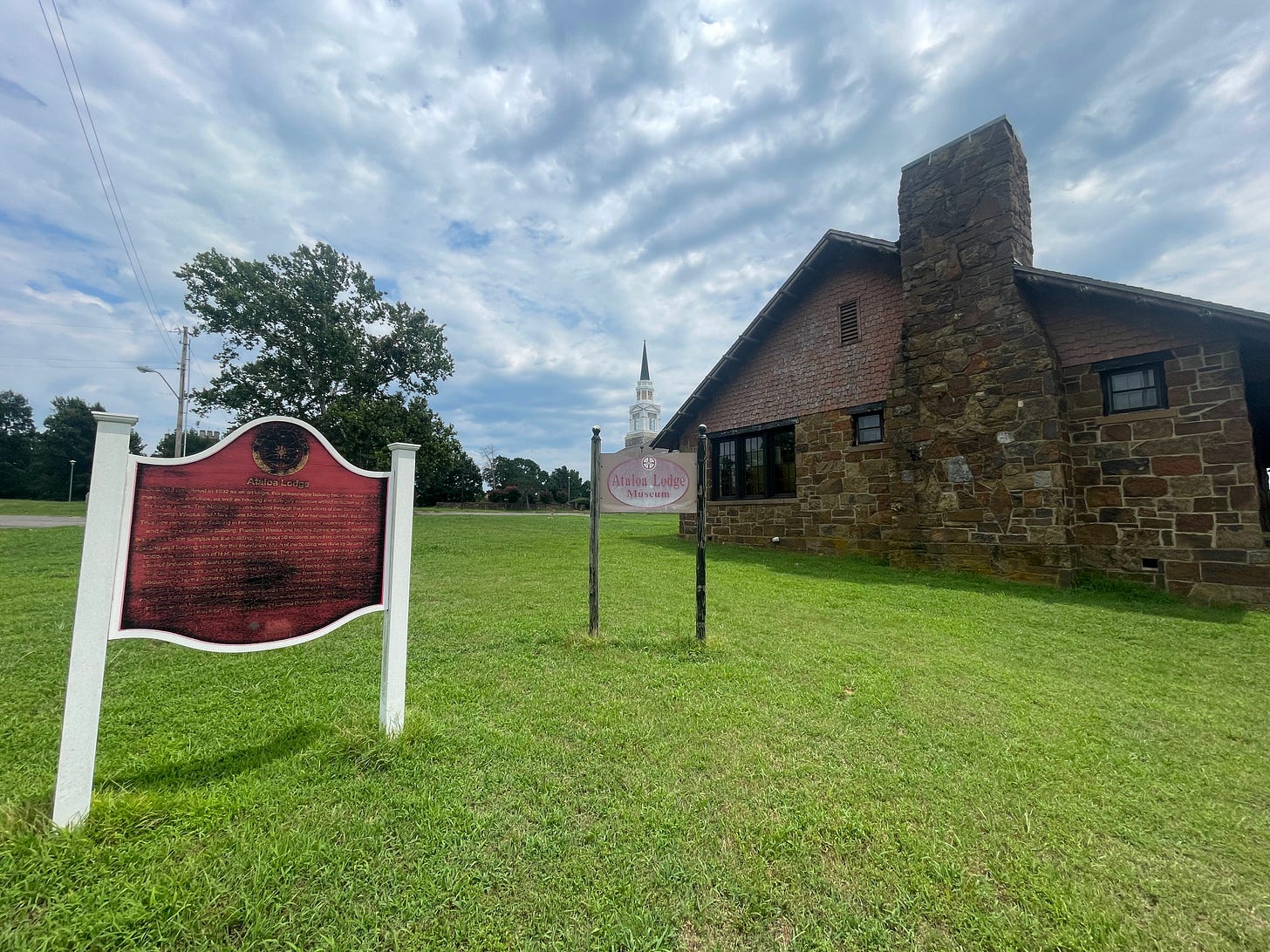Campuses Impacted by LA Fires, City Gets University BRT, & More
Around the College Towns: Links and commentary related to urbanism and higher ed for the week of Jan. 3 - Jan. 10.
Note: I am fine down here in south Orange County, as is our campus at Soka University. Thanks for the concern.
Campuses Close Next to LA Fire
The fires here in LA have been raging for a few days now. The devastation is unreal. Some colleagues and campuses are much closer to the danger. While it is still winter break at many colleges, the following institutions have closed parts of their campuses or canceled scheduled classes due to proximity to the burn:
California Institute of Technology
Glendale Community College
Occidental College
Pasadena City College
Pepperdine University
Santa Monica College
UCLA
Ventura College
As of Jan. 9, Loyola Marymount and USC have remained open, as their campuses are relatively far from the fires. LA is a massive area, with the brunt of destruction in the Palisades (so far). While not yet in the main path of destruction, there have been some scary images from the campuses.
Santa Monica College via @_kyleje.

View from UCLA via r/UCLA Subreddit.
View from Pepperdine via timhortonphotomalibu.

Twitter is Missed in Emergencies
The loss of old Twitter can really be felt during these emergencies. Conor Friedersdorf, journalist at the Atlantic, praised the local media in their coverage while chastising the misinformation on the X platform.
I had noticed this, too. In general, social media decentralizing with Twitter’s demise has made it more difficult to grasp what is happening on the ground during emergencies. I keep seeing claims of arson or government officials did XYZ to exacerbate the fires. Some of it might be true, it’s just difficult to parse through amid the chaos. A central Internet Town Square is sorely missed.
Pittsburgh Getting BRT to Connect Universities
Segments of the new so-called University Line have broken ground in Pittsburgh. This bus rapid transit (BRT) will have dedicated lanes running through downtown Pittsburgh to connect the many campuses of the city: Point Park University, Duquesne University, Oakland’s Carlow University, the University of Pittsburgh, and Carnegie Mellon University.
If done right, bus systems can be cheaper and just as effective as rail, primarily true BRTs. Unfortunately, most American cities do not have good practice with buses and often forgo BRTs completely. If there are no or partial dedicated bus lanes and mixed into typical car traffic, buses will be terrible. I am hoping Pittsburgh’s will be done right!
Colleges Looking More Like Airports
Sodexo is a massive food service company that specializes in campus and educational institution dining. They have announced that they are installing grab-and-go convenience store kiosks at almost 100 colleges across the country.

The company is hyping that this is what Gen-Z wants; but let’s face it, this is going to be cheaper without hiring a clerk to run. I also find the design to look more like an airport rather than a college campus. Admittedly, I may be biased here, as I have not had the best experience with this company in the past (a post for another time).
Squatters in Student Housing
As University of Vermont students have been returning back from Winter vacation, some have found squatters have holed up in their off-campus residences. I’ve always thought that the notion of squatter’s rights was pretty flabbergasting. Go on vacation, come back, and someone else is living in your home. Police won’t do anything because some states offer the squatter considerable protection. Then it takes months or even years to get settled illegally. This seems insane!
Luckily, in this case, the police did indeed take care of the issue, charging the perpetrators. Burlington Police Chief Jon Murad said to WCAX, “off-campus student housing and was a prime target during the school break.” Scary stuff.
A Case Against Land Acknowledgments
The New York Times has an op-ed by Kathleen DuVal, professor of history at the University of North Carolina, Chapel Hill, who writes on Native American issues, calling for the end of the practice of Land Acknowledgments. These have been getting popular in the past few years, especially in academia.
I remember in 2020, during a virtual conference, they asked all participants to do a Land Acknowledgment before any research presentation. The panel wasn’t even related to the US—I was presenting on Chinese higher education—but all four presenters still made statements before beginning. It just felt strange and performative, especially since we were online.
DuVal agrees, recommending rather than individuals making sideshow statements, institutions should be making meaningful connections with Native American groups. In my home state of Oklahoma, in particular, these kinds of issues are critical. This is one reason I hope to add struggling tribal colleges to my sample of closing colleges, having already visited Bacone College, the oldest tribal college in the state. That’s a place that could have desperately used an institutional higher ed partner.







